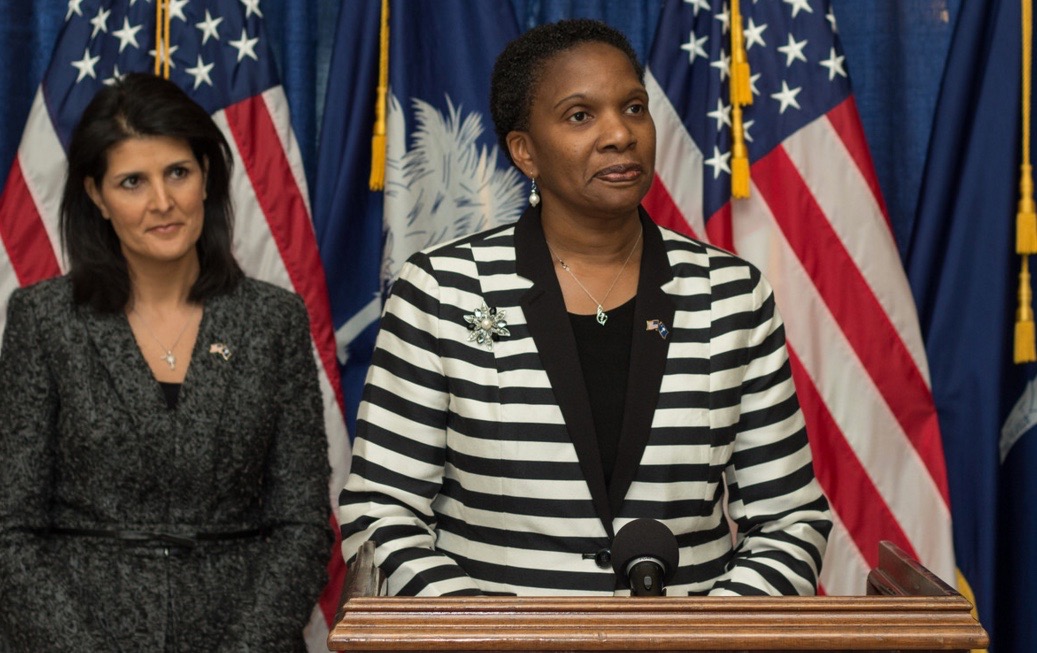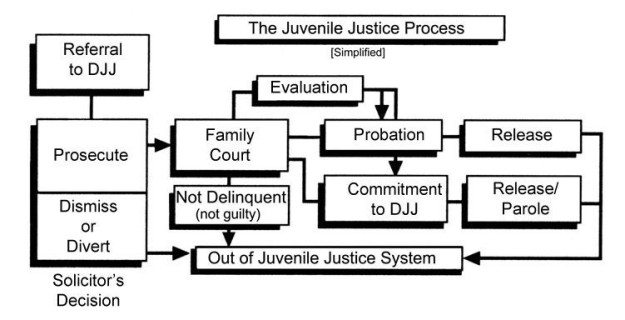NIKKI HALEY’S CABINET IS STRUGGLING … AGAIN
The scandal-scarred S.C. Department of Juvenile Justice (SCDJJ) and its director, Sylvia Murray, were explicitly warned against transferring juvenile inmates to adult prisons in the aftermath of a dramatic escalation of violence at SCDJJ facilities.
They didn’t listen …
The outbursts of violence – which included a late February riot reported on exclusively by this website – have prompted multiple legislative investigations (and a sadly predictable response from governor Nikki Haley, whose administration oversees SCDJJ).
Haley’s administration is also now reportedly facing a looming lawsuit related to Murray’s decision to transfer several juveniles involved in the riots outside of the agency’s purview.
This was reportedly done at Haley’s instruction on the advice of her S.C. Department of Corrections (SCDC) director, Bryan Stirling.
Current state law permits juveniles to be held “for a indefinite period of time, up to age 21” for felonies and select misdemeanors.
From the agency’s website …
Upon commitment, a juvenile will be given a time range or ‘guideline,’ determined by the state Board of Juvenile Parole (for all felonies and select misdemeanors) or DJJ’s own release authority (for most misdemeanors and all status offenses). This range is based on the severity of the juvenile’s offense and his history of previous offenses. These guidelines can run anywhere from 1-3 months up to 36-54 months. The Board and DJJ use these guidelines — along with an evaluation of the juvenile’s behavior and progress — to determine the length of incarceration.
There’s even a nifty flow chart for those of you who are visual learners…
(Click to enlarge)
(Chart via SCDJJ)
According to our sources, multiple members of the S.C. Board Of Juvenile Parole specifically told Murray it was “probably not legal” to facilitate transfers outside of the SCDJJ system – and that doing so would invite some “easily predictable civil actions.”
Of interest? SCDJJ recently parted ways with its longtime general counsel Larry Vanderbilt – replacing him with another attorney who has far less knowledge of the system. Our sources say this issue never would have arisen had Vanderbilt been in a position to impact the process.
As we noted in our previous coverage of this saga, the transfers are not without some justification. After all, don’t kids who participate in rioting deserve some “tough love?”
Probably. In fact we said as much in one of our follow-up pieces exploring the origins of the recent violence.
Others disagree, though.
“SCDJJ needs to do more listening to their amazing onsite therapist and treat these kids for what really is at the core of their behaviors,” one prominent Lowcountry children’s advocate told us. “We can’t continue to lock up children without getting them help!”
The advocate told us of one child offender, in particular … a young boy at SCDJJ who had become increasingly violent after each arrest.
“Five arrests later he finally got to (the therapist),” the advocate told us. “It turned out he had discovered his uncle’s executed body in a pool of blood. Trauma screws up your brain!”
That’s true … and research has shown a disproportionate percentage of juvenile and adult offenders are trauma victims themselves.
Our view? SCDJJ receives an estimated $125 million annually to figure out how to handle these children … most of which are products of our state’s failed government-run schools and/or its totally mismanaged social services agency.
Anyway, SCDJJ’s appropriation includes money for therapists and counselors – as well as guns and billy clubs. It also includes money for bureaucrats who are supposed to know how to best apply these resources toward desired outcomes.
Clearly that’s not happening …

